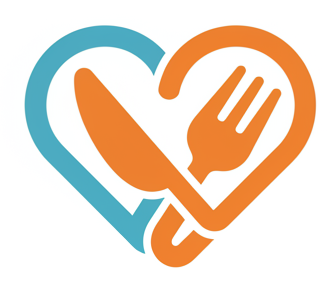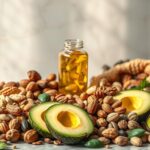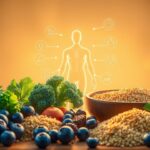To supercharge your diet, focus on foods rich in vitamins, minerals, and antioxidants. These foods are key for optimal health. By adding them to your meals, you can boost your health and feel better.

Adding nutrient-dense foods to your diet is easy and effective. It’s a simple way to improve your health. Start by learning about these foods and how they help your body.
Introduction to Nutrient-Dense Foods
Nutrient-dense foods are the heart of a healthy diet. They give your body the nutrients it needs for good health. Foods like leafy greens, fruits, and lean proteins are packed with vitamins and minerals. They support your overall health and well-being.
Key Takeaways
- Eating nutrient-dense foods can improve overall health and well-being
- Nutrient-dense foods provide the necessary vitamins, minerals, and antioxidants for optimal health
- Incorporating nutrient-dense foods into your daily diet can supercharge your diet
- Nutrient-dense foods are low in calories and unhealthy ingredients
- Focusing on nutrient-dense foods can help to support overall health and well-being
- Leafy greens, fruits, and lean proteins are examples of nutrient-dense foods
Understanding Nutrient Density: The Foundation of Optimal Health
Starting a healthy eating habit is key for good health. A balanced diet gives the body what it needs to work right. Nutrient density helps us choose the right foods.
Nutrient-dense foods are packed with good stuff like vitamins and minerals. They have fewer calories. On the other hand, foods high in empty calories and unhealthy fats are not as good.
What Makes a Food Nutrient-Dense?
A food is nutrient-dense if it’s full of good stuff but not too many calories. Foods like leafy greens, fruits, whole grains, and lean proteins are great examples.
The Difference Between Nutrient-Dense and Calorie-Dense Foods
Nutrient-dense foods are good for you, while calorie-dense foods can harm your health. They can make you gain weight and cause inflammation.
Why Nutrient Density Matters for Your Health
Eating a balanced diet full of nutrient-dense foods helps prevent diseases. It keeps your heart healthy and lowers the risk of diabetes and cancer.
Adding nutrient-dense foods to your diet is easy. Just eat more colorful fruits and veggies, and choose whole grains over refined carbs. With a bit of planning, you can make a healthy eating plan that boosts your health.
Power-Packed Vegetables: The Cornerstone of a Nutrient-Rich Diet
Vegetables are key to a healthy diet, giving us essential nutrients and fiber. They are the heart of a diet full of nutrients, offering many health benefits. Eating a variety of whole foods like veggies ensures your body gets what it needs.
A diet rich in veggies provides essential nutrients like vitamins, minerals, and antioxidants. Leafy greens, cruciferous veggies, and root veggies are packed with fiber, vitamins, and minerals. They are great for a whole foods diet.
- Rich in essential nutrients like vitamins, minerals, and antioxidants
- High in fiber, which helps with digestion and feeling full
- May lower the risk of heart disease and diabetes
- Helps with healthy weight management and weight loss
Eating a variety of whole foods like veggies can greatly improve your health. Simple changes to your diet and lifestyle can bring big benefits to your wellbeing.
Protein Powerhouses: Essential Building Blocks for Your Body
Protein is key for a healthy diet. It helps build and fix muscles, bones, and tissues. For those following clean eating and plant-based diets, knowing protein sources is crucial.
A plant-based diet can meet all your protein needs. Foods like legumes, nuts, and seeds are high in protein. Lentils, chickpeas, and black beans are great for a clean eating diet because they’re rich in protein and fiber.
Complete Protein Sources
Complete proteins have all nine essential amino acids our bodies can’t make. Animal foods like eggs, dairy, and meat are good sources. Some plant foods, like quinoa and soy, are also complete proteins.
Plant-Based Protein Options
There are many plant-based proteins to choose from. Here are a few:
- Lentils
- Chickpeas
- Black beans
- Nuts and seeds
- Whole grains like quinoa and brown rice
Optimal Protein Timing and Portions
Timing and amount of protein are important. Eat protein at every meal and spread it out during the day. Aim for 0.8-1 gram of protein per kilogram of body weight each day.
| Food | Protein Content (per serving) |
|---|---|
| Lentils (1 cup cooked) | 18g |
| Chickpeas (1 cup cooked) | 15g |
| Black beans (1 cup cooked) | 15g |
Healthy Fats: Brain-Boosting Nutrients You Shouldn’t Skip
Healthy fats are key for good health and brain function. They help with hormone production and vitamin absorption. You can find them in nuts, seeds, avocados, and fatty fish.
Healthy fats offer many benefits:
- Improved heart health
- Enhanced brain function
- Support for hormone production
- Aid in the absorption of vitamins
Eating healthy fats can greatly improve your health. Omega-3s in fatty fish are good for the heart and reduce inflammation. Avocados, rich in healthy fats, boost brain function and cognitive skills.
To get enough healthy fats, eat whole, unprocessed foods. Here are some examples:
| Food | Healthy Fat Content |
|---|---|
| Almonds | 14g per 1 ounce serving |
| Chia seeds | 9g per 1 ounce serving |
| Salmon | 12g per 3 ounce serving |

Eating these foods can help you get the most from your diet. Always choose whole foods for the best nutrition.
Supercharge Your Diet: Nutrient-Dense Foods You Need to Eat Daily
To boost your diet, add nutrient-dense foods to your meals every day. This keeps you healthy and feeling great. Eating whole, unprocessed foods gives your body the nutrients it needs.
Plan your day with three main meals: morning, midday, and evening. Each meal should have a variety of foods for all essential nutrients.
Morning Nutrition Boosters
Start your day with foods that give you energy. Some morning boosters are:
- Oatmeal with fruit and nuts
- Scrambled eggs with spinach and whole-grain toast
- Greek yogurt with berries and granola
Midday Power Foods
At midday, eat foods with protein, healthy fats, and complex carbs. Some good choices are:
- Grilled chicken breast with quinoa and steamed vegetables
- Lentil soup with whole-grain bread and a side salad
- Salmon with brown rice and roasted vegetables
Evening Nutrition Optimization
In the evening, choose foods that help you relax and stay healthy. Some evening options are:
- Grilled turkey breast with roasted sweet potatoes and green beans
- Quinoa and black bean bowl with avocado and a side salad
- Baked chicken thighs with brown rice and steamed broccoli
Eating these nutrient-dense foods daily can supercharge your diet. Don’t forget to drink plenty of water all day.
Smart Carbohydrates: Choosing the Right Energy Sources
Carbohydrates are key for energy in a healthy diet. But, not all carbs are good for you. It’s important to pick the right carbs for health and well-being.
Knowing the difference between complex and simple carbs is crucial. Complex carbs, like whole grains and legumes, are full of fiber and nutrients. They are better for a healthy diet.
Complex vs. Simple Carbohydrates
Complex carbs take longer to digest, giving you steady energy. Simple carbs digest fast, causing blood sugar to spike. Choose complex carbs for a balanced diet.
Fiber-Rich Food Sources
Foods high in fiber are vital for a healthy diet. Some include:
- Fruits: apples, bananas, berries
- Vegetables: broccoli, carrots, sweet potatoes
- Legumes: lentils, chickpeas, black beans
- Whole grains: brown rice, quinoa, whole wheat bread
Eating these foods helps keep your diet balanced. Smart carb choices keep your energy up and support your health.
| Fiber-Rich Food | Fiber Content (per serving) |
|---|---|
| Apple | 4.5 grams |
| Broccoli | 5.1 grams |
| Quinoa | 5.2 grams |
Micronutrient Champions: Vitamins and Minerals Made Easy
Vitamins and minerals are key for our bodies to work right. The best way to get them is from whole foods. Eating a variety of whole foods helps our bodies get what they need.
Some important vitamins and minerals and where to find them include:
- Vitamin C: citrus fruits, strawberries, bell peppers
- Calcium: dairy products, leafy greens, fortified plant-based milk
- Iron: red meat, spinach, beans, lentils
Eating a variety of whole foods is important. It helps make sure we get all the nutrients our bodies need. This way, we can keep our bodies healthy and strong.
The table below shows some key vitamins and minerals and what they do:
| Vitamin/Mineral | Function | Food Sources |
|---|---|---|
| Vitamin D | Bone health, immune function | Fatty fish, fortified dairy products, sunlight |
| Potassium | Heart health, muscle function | Bananas, avocados, sweet potatoes |
Creating Your Nutrient-Dense Meal Plan
To start a clean eating and plant-based diet journey, you need a solid meal plan. It’s not just about knowing what to eat. You must plan and prepare carefully. Begin by making a weekly shopping list. This will help you get all the ingredients and nutrients for your meals.
A plant-based diet with lots of fruits, veggies, and whole grains is key for health. Here are some tips for meal planning:
- Make sure to eat a variety of colorful fruits and veggies for lots of vitamins and minerals.
- Add whole grains like brown rice, quinoa, and whole-wheat bread for energy and fiber.
- Choose lean proteins like legumes, nuts, and seeds for muscle health.

By following these tips and adopting a clean eating lifestyle, you can make a meal plan full of nutrients. Don’t forget to drink lots of water and avoid processed and sugary foods.
Weekly Shopping Guide
When making your weekly shopping list, remember to include:
- Fresh fruits and veggies
- Whole grains like brown rice and quinoa
- Lean proteins such as legumes and nuts
- Healthy fats like avocado and olive oil
Meal Prep Strategies
To make the most of your meal plan, try meal prep. Cook in bulk and portion out meals. This saves time and keeps you on track with your plant-based diet.
Conclusion: Transforming Your Health Through Nutrient-Dense Eating
Optimal nutrition is the secret to great health. By choosing nutrient-dense foods every day, you boost your body and mind. This leads to big changes that go beyond just losing weight.
Every food you eat, from veggies to proteins, can give you energy. By picking foods wisely, you can live a healthier life. This choice will benefit you for many years.
Your path to better health is just starting. With what you’ve learned, you’re ready to reach your health goals. Enjoy the wide range of nutrient-dense foods out there. Here’s to a future full of energy and health!
Disclaimer: This article is for informational purposes only and does not constitute medical advice. Always consult a healthcare professional before starting a new exercise or wellness routine.
FAQ
What makes a food nutrient-dense?
Nutrient-dense foods are full of vitamins, minerals, fiber, and other good stuff. They have lots of nutrients for not many calories. This makes them great for a healthy diet.
How do nutrient-dense foods differ from calorie-dense foods?
Nutrient-dense foods give you lots of good stuff. Calorie-dense foods have lots of calories but not as much good stuff. Choosing nutrient-dense foods helps you stay healthy.
Why is nutrient density important for my health?
Nutrient density is key for staying healthy. It helps you get all the vitamins and minerals you need. These nutrients help your body work right and keep you healthy.
What are some of the most power-packed vegetables I should be eating?
You should eat kale, spinach, broccoli, sweet potatoes, bell peppers, and Brussels sprouts. They’re full of fiber, vitamins, minerals, and antioxidants. These help you stay healthy.
What are the best sources of complete protein?
Good sources of complete protein are lean meats, poultry, fish, eggs, and dairy. For plant-based diets, try tofu, tempeh, edamame, and quinoa. They have all the amino acids your body needs.
Why are healthy fats important for my health?
Healthy fats are vital for your brain, hormones, and vitamin absorption. They also fight inflammation and are good for your heart. Adding healthy fats to your diet is smart.
What are some examples of nutrient-dense foods I should eat daily?
Start with a smoothie with greens, berries, and nut butter. For lunch, have a salad with veggies, lean protein, and healthy fats. For dinner, choose whole grains, roasted veggies, and plant-based proteins. Eating these foods daily boosts your health.
What’s the difference between complex and simple carbohydrates?
Complex carbs like whole grains, beans, and starchy veggies give you energy slowly. Simple carbs like added sugars and refined grains give you energy fast but then crash. Choose complex carbs for steady energy.
How can I ensure I’m getting enough micronutrients in my diet?
Eat whole, unprocessed foods to get lots of vitamins and minerals. Leafy greens, citrus fruits, bell peppers, nuts, and fatty fish are great. Eating these foods helps you meet your nutrient needs.







1 thought on “Supercharge Your Diet: Nutrient-Dense Foods You Need to Eat”